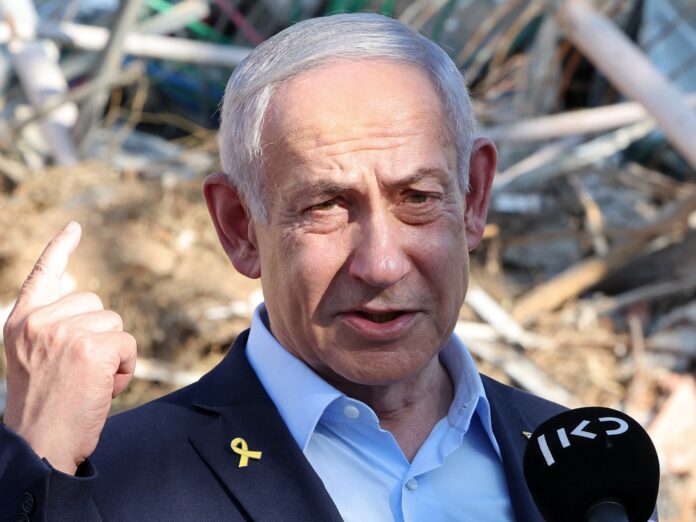What did Israel accomplish in Iran after 11 days of incessant bombing? Prime Minister Benjamin Netanyahu claimed in his statement acknowledging the ceasefire that the Israeli goals have been achieved. Such an assertion seems problematic, to say the least.
At the start of the short-lived war, he declared two goals: “decapitating the nuclear programme” and “regime change”.
Was the nuclear programme decapitated? The answer is likely negative. It seems that Iran transported fissionable material out of the Fordow facility attacked by the United States. This stockpile is the most important part of the nuclear programme, so “decapitation” seems to have failed.
What damage, if any, did Israel inflict on the Iranian nuclear programme? That is also unclear. Israel managed to persuade the US to attack Iranian nuclear facilities using bunker-busting bombs, Massive Ordnance Penetrators (MOPs), but the US did little else to help the Israeli offensive. The extent of destruction would be hard to evaluate since Iran is unlikely to grant outside access.
Has Israel generated “regime change” in Iran? The brief answer is that it has very much achieved the opposite. Israel attempted to trigger an uprising against the regime by killing military leaders of Iran’s various security structures. This strategy is based on the firm Israeli belief that the best way to destabilise an enemy is through assassinations of senior leaders. This has never worked. The only possible exception was the effect Hassan Nasrallah’s death had on Hezbollah in Lebanon, but that had a great deal to do with internal Lebanese political dynamics. In all other cases, Israeli assassinations have failed to create any major political change.
In the case of Iran, the assassinations rallied the people around the government. Israel assassinated the senior commanders of the Iranian Revolutionary Guard Corps (IRGC), perhaps the most powerful element in current Iranian politics, but also one of the most hated by the Iranian public. Regardless, many Iranians who consider themselves staunch opponents of the Islamic Republic and especially of the IRGC found themselves supporting it. Iranians saw Iran in its entirety under attack and not just “the regime”.
Israel’s attempts to bomb “regime symbols” only made the situation worse. It attempted to spin its air strikes on Evin Prison, infamous for the torture of political prisoners, as a contribution to the struggle of the Iranian people against the repression of the Islamic Republic. But Israel’s bombs effectively worsened the situation of the prisoners, as the authorities moved many of them to unknown locations.
Bombing the “Israel doomsday clock”, which Israelis often employ as a demonstration of Iran’s commitment to Israel’s destruction, was simply pathetic.
Israel’s bombing of the Iranian state broadcaster IRIB was also absurd. Israel claimed it was curtailing the regime’s attempt to spread propaganda. As many Israelis pointed out, this bombing gave the Iranians the vindication they needed to threaten Israeli television stations as well.
If Israel did not manage to achieve its stated war goals, did it at least manage to rally the world behind it, to make the public forget about Gaza and recast Israel again as fighting the good fight? That seems dubitable at best. True, President Donald Trump and the US did strike Iranian nuclear facilities. By doing so, they violated several major rules of international law. This is likely to have long-term implications. However, Trump did not join the war alongside Israel. Immediately after the strike, the strategic bombers returned to the US.
Before and after carrying out the bombing, Trump iterated and reiterated his desire for a deal between the US and Iran, one that may also include Israel. It seems likely that the US president assisted Israel to serve his own interests as well as those of his allies in the Gulf.
While several world leaders, most notably German Chancellor Friedrich Merz, were quick to support the US strikes and “Israel’s right to defend itself”, no one adopted Israel’s stringent list of demands, which included that Iran should not be able to enrich uranium at all.
The world returned to the formula of “no nuclear weapon”, with which Iran had already announced it was willing to comply.
When it comes to the operational development of the Middle East, the world appears to find Iran a legitimate partner for doing business. This is a loss for Israel and a victory for Iran.
The very real damage to the Israeli heartland should also be considered. Israel achieved aerial dominance over Iran very quickly and struck almost at will. Iranian missiles, however, repeatedly managed to penetrate the famed Israeli air defence system, strike at the heart of Israel and across the entire country, and bring it to a standstill while inflicting an unprecedented number of casualties as well as massive destruction. Israel was running low on interceptor missiles without hopes of immediate replenishment. The Israeli economy was quickly grinding to a halt. This was another triumph for Iran.
Iran emerged from the war bruised and bombed, suffering hundreds of casualties and real damage from incessant bombing around the country. But the Islamic Republic did not crumble, even when facing a massive Israeli force.
Iranian missiles hit home, Iran’s image was not tarnished (it was seen by most of the world as a victim of an Israeli attack), and Iran’s options for response were not severely constrained. Iran successfully de-escalated by warning in advance about its “retaliation” for the US strike on its military base in Qatar.
Iran was powerful enough to convince Trump to warn Israel not to attack after the ceasefire appeared to have been violated. Iran emerged as it prefers to emerge – still standing, and with potential for the future.
The views expressed in this article are the author’s own and do not necessarily reflect Al Jazeera’s editorial stance.


